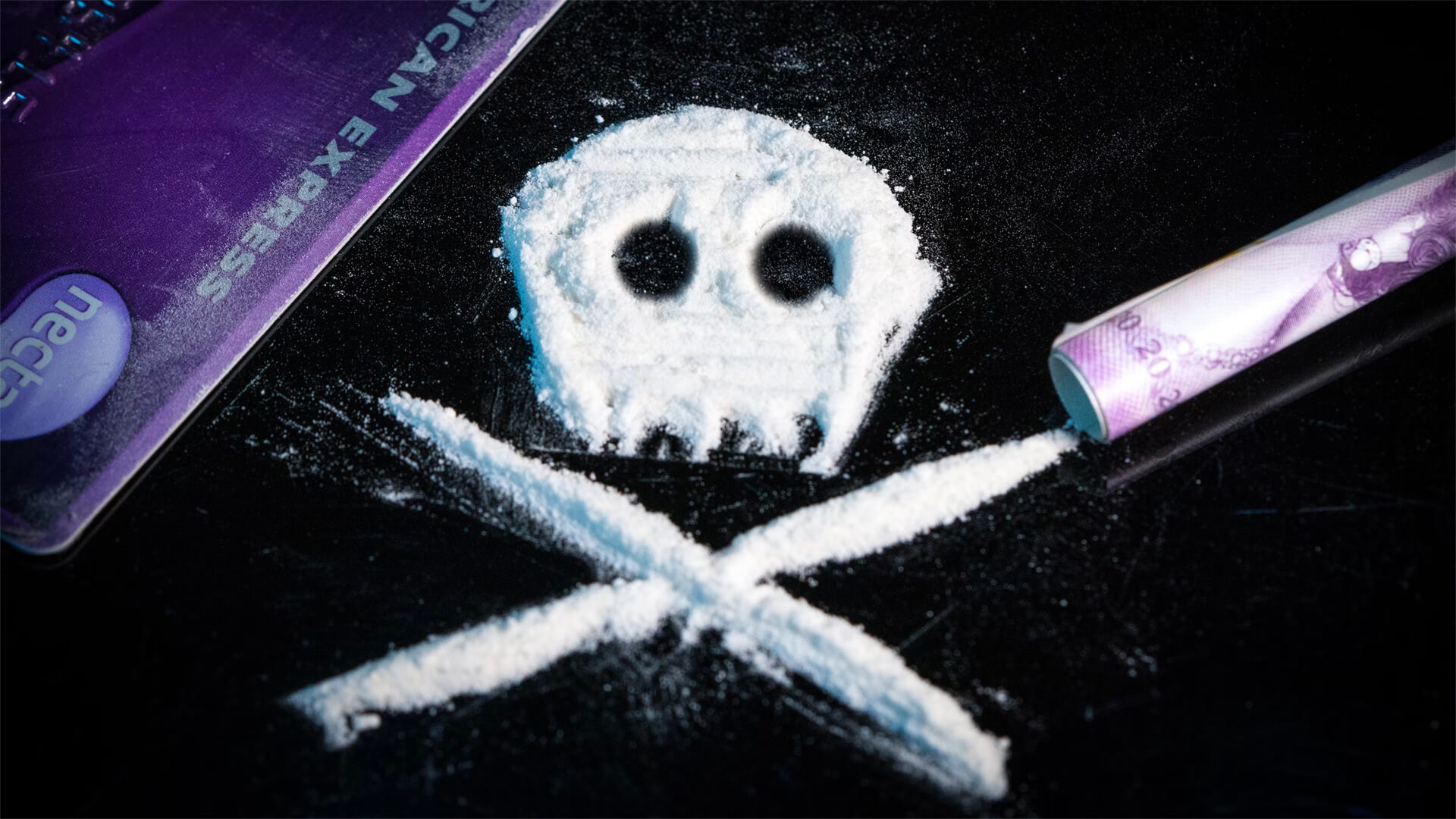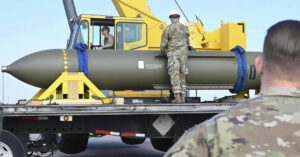Flashback to the 80s with me for a moment…we can leave out the big hair and leg warmers…but let’s talk drugs. Most of the cartel activity came from one place, Colombia. If you’ve ever seen Miami Vice, you get the idea. But once the US caught onto the cartels’ “distribution strategy,” new ways of getting “product” into the US had to be created.
Money started flowing through Mexico, and the drug trafficking business was the place to be; it wasn’t long before the cartels we know today began to form. It’s important to note that not all of these cartels operated the same.
To most cartels, violence was a necessary aspect of the drug trade. The Sinaloa Cartel worked a bit differently; they treated this like a business, and El Chapo was the “CEO.” They partnered with the community, bribed law enforcement, and crime stayed relatively low while they were around.
Once El Chapo was captured and the Sinaloa Cartel started to fall off, groups like Jalisco New Generation surged back onto the scene. Unfortunately, this new wave of cartels brought back the violence and crime levels we see today.
For the US, carrying out military strikes on these cartels across the border just doesn’t make sense…it would be like shooting a fly with a handgun. However, beefing up border security to prevent these cartels from crossing into the states is probably a good idea.
Prefer to read the transcript of the video? Click here
Here at Zeihan On Geopolitics we select a single charity to sponsor. We have two criteria:
First, we look across the world and use our skill sets to identify where the needs are most acute. Second, we look for an institution with preexisting networks for both materials gathering and aid distribution. That way we know every cent of our donation is not simply going directly to where help is needed most, but our donations serve as a force multiplier for a system already in existence. Then we give what we can.
Today, our chosen charity is a group called Medshare, which provides emergency medical services to communities in need, with a very heavy emphasis on locations facing acute crises. Medshare operates right in the thick of it. Until future notice, every cent we earn from every book we sell in every format through every retailer is going to Medshare’s Ukraine fund.
And then there’s you.
Our newsletters and videologues are not only free, they will always be free. We also will never share your contact information with anyone. All we ask is that if you find one of our releases in any way useful, that you make a donation to Medshare. Over one third of Ukraine’s pre-war population has either been forced from their homes, kidnapped and shipped to Russia, or is trying to survive in occupied lands. This is our way to help who we can. Please, join us.
CLICK HERE TO SUPPORT MEDSHARE’S UKRAINE FUND
CLICK HERE TO SUPPORT MEDSHARE’S EFFORTS GLOBALLY
TRANSCIPT
Hey Peter Zeihan here, still in Vegas, still talking about cartels. The thing to remember is if you go back to the 1980s, most cartel activity was not Mexican, it was Colombian because that’s where the cocaine came from. And it would flow up into the Caribbean. It would avoid Cuba like the plague, because the Cubans would just kill everybody who was associated with the drug trade at that time and would flow into Miami almost exclusively. And this is literally the setting for the show. Miami Vice, all the drug wars, continental in scope, going into a single place. But by the time we got to the 1990s, the United States started to shoot down small planes that were flying ten feet over the water at night with no lights on because those were not scuba divers and the cartels were forced to change the way they shipped. And so they started sending shorter hops not to the United States directly, but into Central America, where they go on land and then go up through Mexico to the U.S. border where there’s a 2000 mile border. And before you say, building a wall will help with drugs. No, no, no, no, no, no. You can put a half a million dollars of product in your backpack. A wall is not going to impede you, especially since a wall requires 50 construction roads going down to the border to build the road in the first place. Which means you have no obviated half of the physical border of a Sonora in the Chihuahuan Desert. So if anything, the road has made it a lot easier for illegal migrants and drugs to get into the country. So remember Donald Trump, most pro narcotic, most pro illegal migration president the United States has ever had. Now, where was I? All right. Okay.
So when the cartels were going on land, that meant that the Colombian cartels had to either find middlemen and or bribe the locals in order to help with transit that generated the money flows that ultimately led to the rise of drug trafficking groups within the Mexican system itself. Now, if you fast forward to about 2012 to 2015, one of these cartels took a fundamentally different view of drugs from the rest. The other saw it as a means to power, and they were basically gangs at scale. But the Sinaloa cartel rose up and thought differently. It saw drugs as a business, and anything that interfered with the core business was something to be ruthlessly rooted out from within the organization. So you don’t steal ladies purses, you don’t shoot up the cops, you buy them off, you make them your friends. Because as long as you can bring drugs through a community, you are making money. And that is your primary reason to be. And that sort of attitude allowed them to put roots deep into Mexican society and expand north of the border fairly easily, where they interfaced with the American gang infrastructure.
If it was a Hispanic gang, you had the choice of joining them or dying. Most died. And if you were a black gang, you were probably just killed. One of the reasons that the murder rate in the United States dropped so precipitously in the 2000s is that the Sinaloa in the United States killed the people who were doing the killing. So use that to inform our general assessment of how much progress we’ve made. Now in the United States this allowed Sinaloa to not just become the largest cartel in Mexico, but in the United States and the largest organized crime group in the world. So the Obama administration worked with the Mexican government to capture the leader of that cartel, El Chapo. And then he got out and we got him again. And this started the disintegration of the Sinaloa cartel. El Chapo’s former accountant has tried to take over a chunk of it. Some of his lieutenants have tried to take a chunk of it. Some of his sons have tried to take a chunk of it. One of his sons is on the process of being extradited to the United States right now, but they all lead their own factions. And so this umbrella organization that was Sinaloa really doesn’t exist anymore in the way that it used to. And whenever you’ve got factions in a system, you’ve got violence. And it’s going to sound weird. But when El Chapo was in charge and when Sinaloa was a top down organization, Mexico was reasonably peaceful because there wasn’t infighting within his own organization and Sinaloa was able to cut a series of deals with the Mexican government to go after the other cartels.
Now, on the other side of the equation, the cartel that suffered the most from that alliance with the Gulf or the Zetas cartel. Two different groups that have kind of interwoven history. One group was the enforcers to the other. But once the government and the Sinaloa both turned on them, they basically shattered. And if you go to the eastern third of Mexico, you’re in a situation which is gang on gang violence, nominally under the name of Gulf and Zetas. And the Americans who disappeared and were kidnaped and killed this past week were people who fell in with the Gulf and the Zetas. So if you want to go with this idea of wanting military strikes south of the border against the Gulf, that’ll do nothing, because that’s basically going after the Crips or the Bloods with military hardware. It will do nothing to change the environment because there is no hierarchical organizational structure to disrupt in the first place. You’d literally be going after street thugs, and that’s just not the right tool for the job. And this group, it’s breakdown. That is the primary reason why Mexican murder rates are so high, because you just have gang on gang action, not just at the regional level or the city level, but the block by block level. And they’re fighting over the income that comes from the drug trade.
Now, in the middle, you have another group that used to be at least partially affiliated with Sinaloa that calls itself a Jalisco New Generation. They were led by a dude named El Mencho. Now, El Mencho does not have the same view of El Chapo. So El Chapo, you could basically sum up his position as don’t shit where you sleep. Well for El Mencho the violence is the point.
We’re a gang that gets money from drug trafficking, not we’re drug traffickers who happen to be a gang. So the first thing he tells his people to do when they move into a town is go shoot up the mayor’s office, the police office and any gang headquarters that you can find. Make it very clear to everyone who’s in charge and who has the guns and what the penalty for noncooperation happens to be. And that has made Jalisco New Generation very hierarchical, very violent, and has contributed massively to the violence south of the border. Now they are in the process of attempting to go north of the border to challenge Sinaloa in basically what is the the great fields of income generation opportunities in the United States. They haven’t succeeded yet and if there is a fight to be had in the United States, it is at the plazas and the border cities to make sure all this go. New generation does not cross in because if they do, wow, we think our murder rate went up because of COVID. Holy crap, Jalisco would go into Phoenix and Dallas and El Paso and Houston and Austin and San Diego and just start killing people to prove to everyone that they can. And if you want a 1930 Chicago level of violence in the United States and every city within 500 miles of the border, that’s exactly what will happen if Jalisco New Generation punches forward.
So military strikes south of the border. This isn’t going to fix anything, but perhaps an increased security presence in the city specifically to prevent Jalisco from crossing north that might be a pretty good idea.
Alright. Next time, we’ll talk about some of the economics of drugs and those things have changed.








